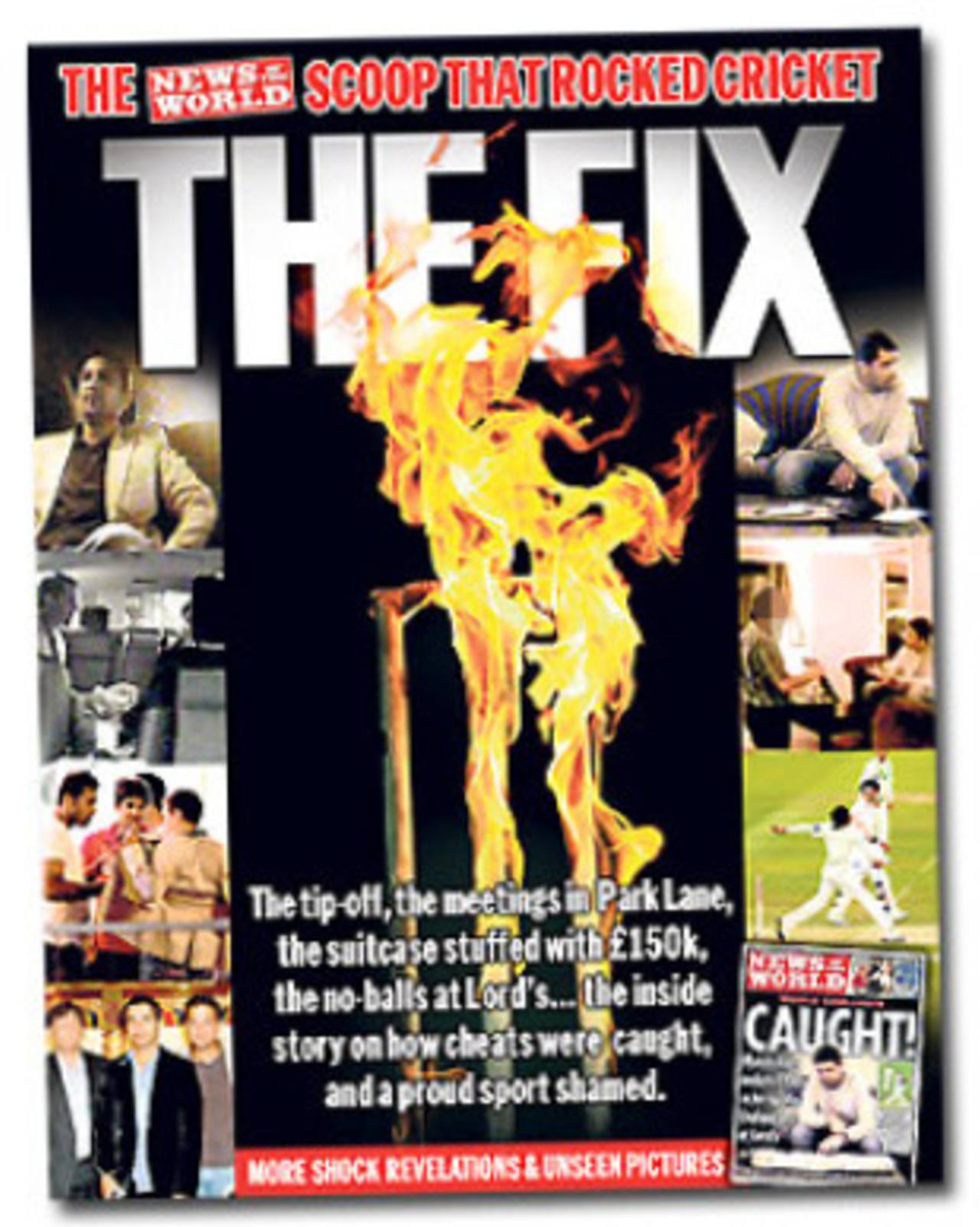MCC recommends lie detector tests
The MCC World Cricket Committee has made several proposals to help overcome match-fixing, including the use of lie detector tests and the legalisation of betting markets in India
ESPNcricinfo staff
15-Dec-2010

A variety of plans are being proposed to try and stamp out corruption in the game • News of the World
The MCC World Cricket Committee has recommended that the laws of the game be amended in a bid to rid the sport of corruption, and has called for the use of lie detector tests to reinforce the need for transparency in the wake of the spot-fixing scandal that erupted during Pakistan's tour of England in August.
Following a two-day meeting in Perth ahead of the third Ashes Test, the club's working party, including two former Ashes-winning captains in Steve Waugh and Mike Brearley, issued a statement containing a wide range of proposals including "the legalising and regulating of betting markets in India as proposed by the Delhi Court; the length of bans; non-selection of tainted players; the possible use of lie detector tests; the provision of integrity officers; and the inclusion of anti-corruption clauses in all professional playing contracts in all countries."
"The greatest issue facing the game right now is match-fixing," said Waugh. "How can we make players more accountable for their actions? Personally, I think if you've not done anything wrong, why wouldn't you want to have a lie detector test? You can't make it compulsory but like I said, if you've got nothing to hide, why wouldn't you take it? If we sit back and don't do anything about corruption, it's going to get worse."
In its statement, the committee also complimented the ICC and its Anti-Corruption & Security Unit (ACSU) for its work to clean up the sport, but urged the game's governing body to commit more resources - and increased powers - to tackle the single biggest menace to the integrity of cricket.
"The education of players should not be a meaningless formality; the message should be pressed home with regularity by figures known and respected by the players," the statement read. "Furthermore, the committee believes that team captains - as enshrined in the Laws and Spirit of Cricket - should accept greater responsibility for the conduct of their players."
Speaking on the eve of the Perth Test, England's captain, Andrew Strauss gave a cautious welcome to the notion of introducing lie detectors to the game. "That's hard for me to answer at this stage," he said. "I don't know about the accuracy of lie detector tests. But what I do know, and is probably more important, is that we don't want the whiff of anything suspicious going on in the game.
"We've seen how disruptive and detrimental to the game of cricket it is," added Strauss. "The devil of all these things is in the detail. If we have to take extreme measures in order to be 100% confident the game is being played in the right spirit, then I'd certainly be happy to do that.
"I'd have to think about the arguments [for lie detector tests] one side and another first. But the principle, of having 22 guys on the pitch that the supporters are absolutely 100% certain are playing the game for the right reasons, is a good thing."